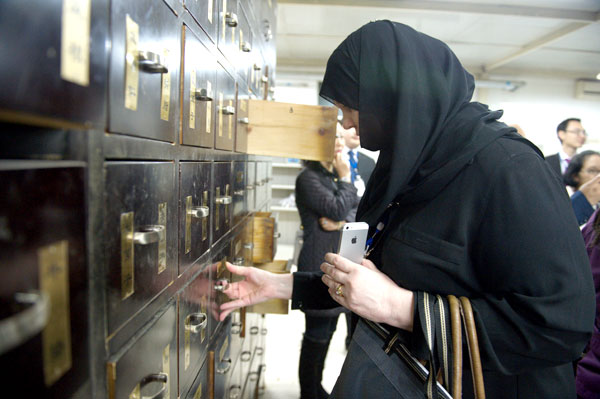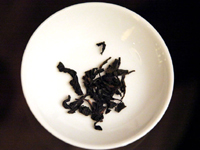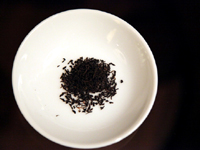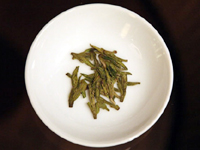Beijing hosts TCM program
 |
|
Cynthia Joan Mosher of Saudi Arabia visits a traditional Chinese medicine shop in Beijing. On Monday, 17 health officials from 14 Asian countries attended a 10-day TCM training program held by China's National Health and Family Planning Commission. Wei Xiaohao / China Daily |
Despite H7N9 human infections, some 17 health officials from 14 Asian countries have traveled to Beijing to attend a 10-day traditional Chinese medicine training program held by the Chinese National Health and Family Planning Commission.
The program, sponsored by the commission and organized by Guang'anmen Hospital, China Academy of Chinese Medical Sciences, was launched on Monday.
TCM is practiced in more than 160 countries and regions across the world, and some Asian countries have started integrating traditional and complementary medicine into their national health system to help improve healthcare access and limit dramatic increases in health expenditures, said Cui Yongqiang, chief of the hospital's international cooperation department. He's also in charge of the training program.
The program focuses on sharing China's experience in advancing TCM science, non-medicinal therapeutic techniques of TCM integrated with modern medicine and exploring efficient cooperative mechanisms among participating countries, Cui said.
"Both lectures and field studies, mainly about acupuncture, Chinese massage or tuina (a hands-on body treatment that incorporates principals of Taoism), are included in the training, which also serves as a platform for participants to exchange ideas and foster cooperation," he told China Daily at the launch.
Hu Meiqi, an international cooperation division chief of the commission, said: "China and many Asian countries have many similarities in economic development and healthcare systems. The program will help all participant countries better use TCM to improve national health."
The program will also help boost TCM cooperation in Asia, particularly in combating chronic diseases, a rising public health concern across the continent, she added.
Cui said the program will benefit China as well.
"The training aims to improve their understanding of TCM and that somewhat will help eliminate potential barriers both in awareness and trade when TCM taps into their markets," he explained.
Evelina M Juaban, director of the traditional and alternative healthcare institute under the health department of the Philippines, said the Philippines is working to integrate TCM into its national healthcare system and provide TCM services at large hospitals.
They are only available at small private clinics, she said.
"We (the health department) are in the process of standardizing the practices and services, and I hope to gain some insights concerning that from the Chinese experts here," she said.
Experience in TCM legislation, particularly in countries other than China, will also be a focus at the training, she added.
Lian Siew Bee, deputy director of the nursing department of Singapore General Hospital, said she would be exploring the possibility of integrating TCM techniques like acupuncture and tuina into the nursing system at her hospital.
Other participating countries include Cambodia, Malaysia, Thailand, Vietnam, Nepal and Saudi Arabia.
|
|
|
|
|
Tea?column?1: |
Tea column 2: |
Tea column 3: |

























